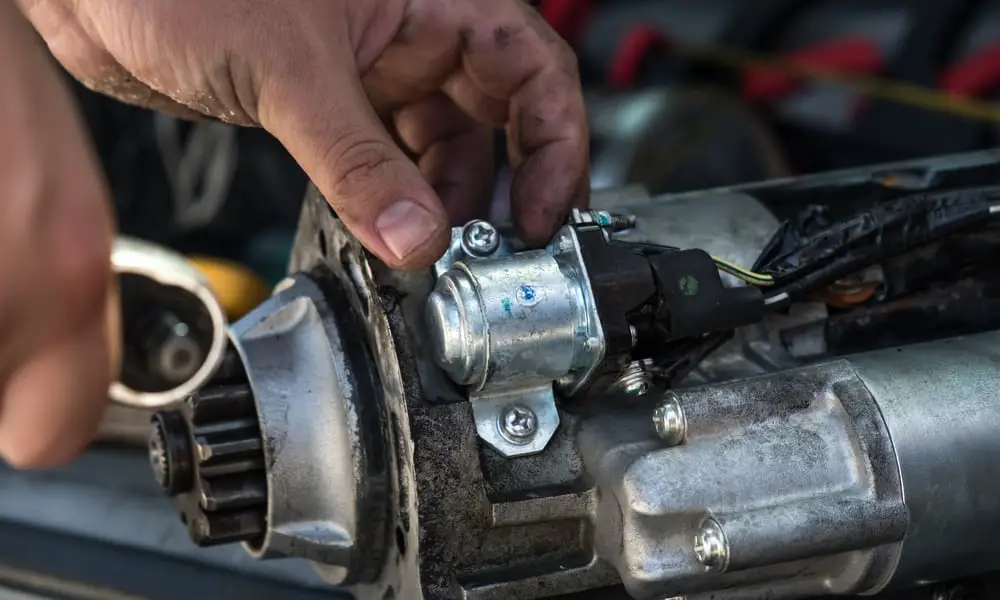Symptoms and Causes of Starter Wear

Symptoms and Causes of Starter Wear: How to Keep Your BMW Running Smoothly
Your car's starter is a small but mighty component that plays a crucial role in getting your engine going. Over time, wear and tear can affect its performance, leaving you stranded when you least expect it. For BMW owners, understanding the symptoms and causes of starter wear can save you from costly repairs and unnecessary headaches.
In this article, we’ll explore common signs of starter problems, their underlying causes, and tips on how to prolong its life. Whether you're using new car parts or used parts, proper care is key to maintaining your BMW’s reliability.
What Is a Starter and How Does It Work?
The starter is an electric motor that cranks your engine, allowing it to start. When you turn the ignition key or press the start button, the starter motor engages, rotating the engine’s flywheel. This sparks the combustion process that powers your car.
Without a functioning starter, your car won’t start, no matter how powerful the engine or fully charged the battery is.
Symptoms of a Failing Starter
Clicking Noise When Starting
If you hear a clicking sound when attempting to start your car, the starter solenoid might be malfunctioning. This indicates that the starter isn’t receiving enough power to turn the engine over.
Intermittent Starting Issues
A worn starter can work sporadically, leaving you wondering whether your car will start the next time.
Grinding Noise
A grinding sound can occur if the starter drive gear is worn out or improperly engaging with the flywheel. Left unresolved, this can damage the flywheel as well.
Engine Won’t Crank
The most obvious sign is a complete failure to crank the engine. While a dead battery is a common cause, a bad starter is another likely culprit.
Burning Smell or Smoke
If you detect a burning odor or see smoke from under the hood, the starter motor may be overheating due to prolonged cranking or an internal short circuit.
Common Causes of Starter Wear
Frequent Short Drives
Short trips don’t allow the battery to fully recharge, placing excessive strain on the starter.
Corroded or Loose Connections
Poor electrical connections to the battery or starter can cause voltage drops, leading to inefficient operation.
Old or Faulty Battery
A weak battery forces the starter to work harder, accelerating wear.
Poor Maintenance
Neglecting routine inspections of your vehicle’s electrical system can lead to undetected issues that damage the starter.
Age and Usage
Like all car parts, starters have a finite lifespan. The more you drive, the sooner it will need replacement.
Should You Choose New or Used BMW Starter Parts?
When replacing a worn starter, you can opt for new car parts or used parts, depending on your budget and preferences.
New Parts: Offer peace of mind with reliability and warranties but come at a higher cost.
Used Parts: A budget-friendly alternative that can be just as reliable when sourced from a reputable dealer. Always verify compatibility with your BMW model using the VIN.
How to Extend the Life of Your Starter
Maintain Your Battery
Regularly check your battery’s health and ensure its terminals are clean and secure.
Limit Short Trips
Combine errands into longer trips to reduce strain on your starter and battery.
Inspect Electrical Connections
Periodically check wiring for corrosion or loose connections, especially in older vehicles.
Address Problems Early
Don’t ignore unusual noises or intermittent issues. Early diagnosis can prevent more significant damage.
Conclusion
Understanding the symptoms and causes of starter wear is essential for keeping your BMW running smoothly. Whether you choose new or used car parts, ensuring compatibility and quality is crucial for maintaining your car’s performance.
For reliable replacements and professional advice, always consult experts specializing in BMW car parts. Taking proactive steps today can save you from breakdowns and costly repairs tomorrow.
